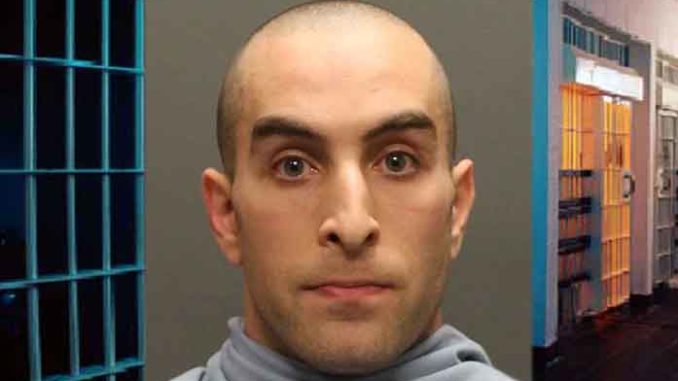
A man with a well-documented history of mental health problems including two involuntary commitments is waiting for a federal judge in Tucson to decide whether the death penalty will be an option when he stands trial next year for killing a deputy U.S. Marshal in 2018.
Ryan Phillip Schlesinger was the subject of an emergency petition filed by the Tucson Police Department’s Mental Health Support Team on Nov. 26, 2018, in an effort to have him involuntarily committed once again. Three days later, he shot at members of a U.S. Marshals Service taskforce as they executed an arrest warrant at his residence.
Deputy U.S. Marshal Chase White suffered fatal injuries in the shootout. The U.S. Attorney’s Office for the District of Arizona filed a death penalty notice in June 2020. It applies to two of the 13 counts in Schlesinger’s indictment: First Degree Murder of a Federal Officer and Using a Firearm During a Crime of Violence Resulting in Death.
Senior U.S. District Judge Raner C. Collins previously denied a defense motion to strike the federal death penalty as unconstitutional as applied to this case. He has now been asked by Schlesinger’s attorneys to strike the death penalty notice due to lingering issues with COVID-19 interfering with the defense team’s ability to ensure the “heightened reliability” required in death penalty cases.
“A capital case requires extraordinary safeguards and protections because human life is at stake,” the motion argued. “These extraordinary safeguards and protections have been impossible to achieve in Mr. Schlesinger’s case due to pandemic’s effects, many of which persist two years after the world shut down.”
Collins has not indicated when he will rule on the issue. In the meantime, the parties continue to prepare for the Jan. 17, 2023 start of Schlesinger’s trial.
Earlier this year, Collins ordered the U.S. Attorney’s Office and the various taskforce agencies involved in executing the November 2018 arrest warrant to disclose the “specific written policies” used in such high-risk situations. In response, the government has requested a Protective Order barring any member of Schlesinger’s defense team -including investigators, paralegals, office staff, and expert witnesses- from reproducing or further distributing the policies.
“Dissemination of the materials could endanger law enforcement personnel and interfere with these law enforcement agencies’ safe operation,” the U.S. Attorney’s Office argued.
The government also wants the protective order to prohibit Schlesinger from reviewing the material “in any format,” something his defense attorneys strenuously oppose. They point to the fact Collins has already issued several other protective orders related to sensitive case documents, all of which allow Schlesinger to review the documents although he may not retain a copy.
The judge has not yet ruled on the latest Protective Order motion. But he has been busy granting several requests from the parties to set address certain pretrial deadlines.
As a result, there is now a July 15 deadline for suggesting jury selection procedures and the questions mailed to prospective jurors in advance of the trial. And the U.S. Attorney’s Office has until July 28 to file a Daubert motion which deals with the admissibility of expert witness testimony.
The same deadline exists for the government to file an Informative Outline identifying the evidence it wants to introduce to prove six alleged aggravating factors in Schlesinger’s case. Two of those factors -substantial planning and premeditation as well as victim impact- are specifically cited in support of the death penalty.
READ MORE ABOUT SCHLESINGER’S ARREST HERE

